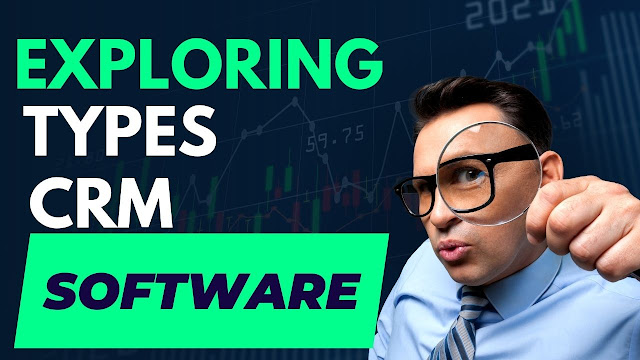” “dog fitness tracker,1,” “smart dog collar,1,# website marketing×# content marketing×# digital marketing×# blogging,1,1 Targeted Solo Ad Traffic,1,10 Sustainable Ways to Make a Positive Impact on the Environment,1,16 CH 16 Cams 4K PoE 8MP Security Camera System,1,2025 Reviews,1,2025 Tech,1,2025 Tech Trends,1,4K resolution security cameras with motion detection,1,5 Smart Ways to Protect Your Home from Hackers,1,7 Figure Cycle,1,7 Figure cycle e commerce selling systems,1,7 Figure Cycle eCommerce Training systems,1,7 Figure cycle systems,1,7figurecycle,1,7figurecycle best ecommerce training,1,A Comprehensive Guide to Cloud Computing,1,About Ceridian,1,About Dropshipping automation,1,About Einstein discovery tableau,1,About Gusto,1,ADP,1,advertising automation,1,affordable smart home setup,1,AI Advertising Platforms,1,AI antivirus software,1,AI Assistants,6,AI Business Process Automation,1,AI Checkers,1,ai crm,2,AI cybersecurity 2025,1,AI cybersecurity smart home 2025,1,AI cybersecurity tools review,1,AI Devices,1,AI doorbell camera,1,ai email tools,1,ai for sales emails,1,AI home security systems 2025,1,AI in Payroll Processing,1,AI in threat detection,1,AI Market Research Tools,2,AI Marketing Automation Tools,1,ai payroll,8,AI Payroll Adaptation Options,1,AI Payroll Integration with HR,1,AI Payroll Use Cases by Industry,1,AI Payroll: Statistics,1,Ai Productivity Accelerator Reviews,1,AI Productivity App,8,AI Prompt Engineer Course,1,AI security tools,1,AI Studio,1,AI Tools,55,AI Tools from Multiple Sources,1,AI-Enabled Payroll Worker Classification,1,AI-powered malware,1,AI-powered malware protection,1,Alexa,1,Alexa Compatible,2,Alexa Compatible Devices,1,Alexa devices for apartments,1,Alexa fix,1,Alexa Fixes,1,Alexa pet feeder,1,Alexa smart plug,1,Alibaba Dropshipping: Is It Worth the Effort and How to Succeed?,1,Amazon automated drop shipping,1,Amazon smart plug,1,An In-Depth Guide to the Taobao Homepage: Features and Functionality (淘宝网首页功能和特点详解),2,An Introduction to Taobao 淘寶: The Online Shopping Giant of China,1,and Best Practices,1,and FAQs,1,and how can I leverage them to improve my CRM strategy?,1,and Impact,1,and Why It Matters,1,apartment pet technology,1,application development outsourcing,1,apps outsourcing services questions and answers,1,Are Smart Homes Safe from Hackers?,1,Asana or Trello?,1,automate appliances,1,Automate your dropshipping business,1,automated drop shipping,1,automated drop shipping business,1,automated drop shipping shopify,1,automated drop shipping software,1,automated drop shipping website,1,Automated dropshipping,1,Automated dropshipping popular software,1,Automated dropshipping software,1,automated ebay dropshipping,1,Automated order fulfillment for dropshipping,1,Automated Prompt Engineer,1,automated prompt engineering,1,Automatic cat toilet,1,automatic dog food dispenser,1,automatic feeder for dogs,1,automation,1,Automation Home Tools Testing vs. Home Alarm Report,1,Automation Software,1,Autoresponder,1,beginner home automation,1,Best 4km Multi-Sensor IoT Smart Security Camera System,1,best AI cybersecurity 2025,1,Best AI cybersecurity tools home users 2025,1,best AI security tools,1,best AI security tools for homes,1,best AI-powered alarm system,1,best AI-powered tools for creating videos,1,Best Budget Smart Bulbs You Can Control with Your Voice,1,best crm for small business,1,best crm software,1,best endpoint protection,1,best Lead Technology Tools,1,Best Outdoor IP67 Waterproof 32CH CCTV Video Surveillance System,1,Best outdoor security camera system,1,Best practices for implementing a social CRM strategy,1,Best Practices For Lead Tracking Management,1,best smart plug 2025,1,best smart plug for home office,1,best smart plugs,1,best smart thermostat no wiring,1,Best Standalone Alarms for Home Safety,1,Binance Cloud Mining,1,Binance Cloud Mining reviews,1,Bitdefender BOX 3,2,Bitdefender GravityZone,1,budget smart home,1,Business Model,1,Challenges,1,Choosing the Best Security System in 2025,1,Clicky homes Real estate Agents Marketing Platform,1,clickyhome agency,1,clickyhomes,1,clickyhomes platform,2,Clickyhomes real estate agent platform,1,Cloud computing
Business
Data security
Cost
Flexibility
Scalability
Advantages
Disadvantages
Examples
Reputable providers.,1,cms,1,cms website,1,CMS-Dependent Website,1,content management system WEBSITES,1,content management systems,1,content manager,1,CRM,4,crm & marketing automation,1,CRM Applications,1,CRM Benefits,1,CRM business,1,CRM Companies,1,CRM Database,1,CRM Email Automation,1,CRM for Advertising,1,CRM For Dummies,1,crm for pc,1,crm for real estate agents,1,crm is,1,CRM Marketing Strategy,1,CRM method,1,crm monday,4,CRM Platforms,1,CRM program,3,CRM program for small business,1,crm questions and answers,1,CRM service,1,CRM service provider,1,CRM Software,3,crm software monday,4,crm strategy,1,crm system Monday reviews,1,CRM Systems,2,CRM Techniques,1,crm tools,1,CRMS,1,CRMS Benefits,1,CrowdStrike Falcon review,1,CUJO AI,1,CUJO AI firewall,1,Customer Care In drop shipping,1,customer relationship,1,Customer relationship management,4,Customer relationship management Computer software,1,Cybersecurity for automation,1,Darktrace AI review,1,day 2,1,Day 3,1,Digital Advertising,1,Digital Marketing automation,1,digital marketing automation gartner,1,digital marketing automation software,1,digital marketing automation tools,1,Direct email Marketing,1,Direct mail Providers,1,DIY Home Security.,1,Do Smart Thermostats Really Save You Money,1,dog GPS tracker,1,drop ship from Amazon to my Shopify,1,drop shippers,1,drop shipping,1,drop shipping automation,1,Drop shipping automation tips,1,drop shipping urban news,1,dropship automation solution,1,Dropshipping automation platforms,1,Dropshipping automation tools,1,e-commerce,1,Echo Dot deals,1,Effective Drop shipping,1,einstein discovery in tableau,1,Einstein discovery tableau,2,email,1,email ai tools,2,Email Automation,1,Email campaign,1,Email Marketing,1,Email Marketing ROI,1,Email marketing system,1,Energy Saving,2,energy-efficient thermostat for renters,1,energy-saving automation,1,energy-saving smart gadgets,1,ESET Smart Security,1,est smart litter boxes,1,Exploring the Homepage of Taobao (淘宝网首页),1,F-Secure SENSE,1,Fi Smart Collar,1,Fiction And drop shipping,1,Firewalla Gold,1,fix,1,From E-Commerce Giant to Global Conglomerate: A Comprehensive Look at Alibaba's History,1,Full HD 4K 8MP PTZ CCTV System,1,Gadgets,3,Generate Leads Application,1,Get Traffic To My Website,1,GetResponse vs HubSpot: Which One Is Right for You?,1,GetResponse What It Is,1,Getting Creative With Your Content Management System,1,Global Dropshipping Agent: Your Bridge to Worldwide E-commerce Success,1,Google AI Studio,1,Google Assistant Devices,1,Google Home,2,Google Home Devices,1,Google Home Help,1,Google Home problems,1,Google Home smart strip,1,GPS dog collar for apartments,1,gusto payroll pricing,1,Halo Collar,1,handbags dropshipping,1,home alarm maintenance log,1,home automation,2,home automation gadgets,1,home automation guide,1,home automation tips,1,home automation tools,1,home efficiency,1,home energy efficiency tech,1,home network protection AI,1,home safety tracking,1,Home Security,1,home security checklist,1,home security system logbook,1,Home Security Systems Are a Waste of Money?,1,Home Security Systems Average Search Volume,1,How AI protects systems,1,How CRM Helps Businesses Improve Customer Relationships,1,How do emerging technologies like AI and machine learning impact the CRM industry,1,how to be a Top CRM Consultants,1,How to become an ai prompt engineer?,1,How to Calculate Payroll Taxes: A Step-by-Step Guide,1,How to Create a Site audit with Python?,1,How to Ensure Compliance with Payroll Laws and Regulations,1,How to Protect Your Devices from Hackers,1,How to Schedule Social Media,1,How to Set up an Efficient Payroll Process for Your Small Business,1,How to Use It,1,HS300 review,1,HubSpot,5,Improving customer retention,1,Improving customer satisfaction,1,Indicators On amazon automated drop shipping,1,Is Monday,1,Jasper AI,1,Kasa Smart,1,Kasa Smart Plug HS300,1,Key Features to Look for in a Security Camera,1,Key to Smarter Home Security,1,Lead Gen and Management Software,1,Lead Generation,2,lead generation automation,2,Lead Generation Emails,1,Lead Generation Software,2,Lead management tool,1,Lead Software,1,lead tracking,1,Lead Tracking Management,1,list of common types of business workflow diagrams,1,Litter Box,1,Long Distance Relationship,1,Low-cost Advertising,1,Management Software,1,marketing asset management,1,Marketing Automation,2,marketing Automation Consulting,1,Marketing automation definition,1,Marketing Automation For Lead Generation,1,Marketing Automation platforms,2,marketing Automation Software,1,Marketing courses,1,Measuring Content Performance,1,Microsoft Defender XDR,1,Mobile Marketing automation,1,mobile marketing automation companies,1,mobile marketing automation platform,1,mobile marketing automation software,1,monday com marketing,1,monday crm real estate,1,monday crm review,1,monday crm system,1,Monday sales CRM price,1,Monday.com desktop app,1,Monday.com Charts and graphs,1,Monday.com Customer data management,1,Monday.com Demo,1,Monday.com desktop app mac,1,Monday.com download for windows 10,1,Monday.com Email platforms,1,Monday.com Files,1,Monday.com Gantt charts,1,Monday.com Integration,1,Monday.com Knowledge Base,1,Monday.com Payment processing platforms,1,Monday.com Project management tools,1,Monday.com Real-time dashboards,1,Monday.com reporting system,1,Monday.com Stories,1,Monday.com Training,1,Monday.com Video tutorials,1,monday.com vs asana vs trello,1,Monday.com Webinars,1,Monday.com Workforms,1,mondays crm,4,mondays project management,4,mondays software,4,mugs and pillows,1,new trends in smart home devices,1,No Contract Security,1,no-drill smart home gadgets,1,Norton 360 LifeLock,2,not responding,1,offline,1,online lead generation,1,online payroll services,2,Open Rates or Click-Throughs,1,opencart automatic dropshipping,1,Outdoor Security Camera,1,Partnerstack The Best Affiliate Programs,1,Patricks Proven Solo Ads,1,Paychex,1,payroll,1,payroll cost,1,Payroll Implementation Consultant Salary,1,Payroll management for small businesses,1,Payroll Outsourcers,1,Payroll Outsourcing,1,Payroll Outsourcing Companies,1,Payroll service for small businesses,1,Payroll Services,2,Payroll Services - paychecks Payroll,1,pet automation,1,Pet Gadgets,2,Pet supplies,1,Pet tech gadgets,1,power automate cloud flow,1,Privacy Concerns,1,Product Reviews,2,Professional Monitoring Systems,1,project management software,4,project management software monday,4,project management tool monday,4,Project Management Tools Monday,1,Prompt Engineer,1,Prompt engineering,2,quickbooks payroll cost,1,real estate,1,Real estate agents,1,real estate agents in the us,1,real estate agents near me,1,real estate agents pdf,1,Real estate crm,1,Real estate crm software,1,Real Estate Lead generation,1,Real estate marketing automation,2,real relationship,1,real-time AI cybersecurity,1,real-time AI monitoring,1,Relationship Advice,1,relationship management Computer software,1,relationship manager,1,relationship marketing,1,Relationships,1,remote control plug,1,rental-friendly automation,1,Reputable Suppliers,1,Revid.ai vs. Lumen5: Choosing the Right Video Creation Tool,1,Revid.ai vs. Runway ML,1,Revid.ai vs. Synthesia,1,Revid.ai vs. Veed.io: Which Video Tool Fits Your Needs?,1,review,1,Ring Video Doorbell Amazon,1,Ring vs Nest security 2025,1,Safeguard Payroll,1,Safety Protection LPR Parking System,1,sales and marketing automation,1,sales and marketing manager job description,1,Sales Automation,1,sales automation in crm,1,Sales Email AI,1,sales marketing job description,1,Sales Representative job description,1,Sales Representative skills,1,Salesforce Einstein AI,1,Schedule Social Media,1,Secure CMS,1,Secure Your Home with Smart Locks,1,Securing the Future: The Role of AI in Cybersecurity,1,Security,45,security logbook for homeowners,1,Selenium Grid: Scaling Your Test Automation Infrastructure,1,Self-cleaning litter box 2025,1,Seller Bot,1,SentinelOne review,1,Separating Your Alarm and Camera Systems,1,shopper’s,1,Should I use Monday.com,1,SimpliSafe,4,SimpliSafe 10-Piece Wireless Home Security System Review,1,SimpliSafe 9 Piece Review,1,slippers,1,Smarketly,1,smarketly features,1,Smarketly Marketing Automation Platform,1,Smarketly marketing automation systems,1,Smarketly sales marketing automation,1,smarketly the best Email marketing automation software,1,smart bulbs,1,Smart Device Errors.,1,Smart Devices,1,smart devices for pet owners,1,smart dog collars 2025,1,Smart doorbell,1,smart feeding schedule for pets,1,Smart Home,8,smart home 2024,1,Smart home cybersecurity,1,smart home cybersecurity 2025,1,smart home devices,2,smart home devices for renters,1,Smart home for pets.,1,smart home gadgets,2,Smart Home Guide,1,smart home protection AI,1,Smart Home Security,2,smart home security AI,1,smart home security with facial recognition,1,smart home setup,1,smart home threat detection,1,Smart Home Troubleshooting,2,smart lighting,1,smart litter box,1,Smart lock,1,smart pet camera for renters,1,smart pet feeder automation,1,smart pet feeders,1,smart pet gadgets for apartment,1,smart pet gadgets for city living,1,Smart Pets,2,smart plug,1,smart plug for Alexa,1,smart plug with Alexa,1,Smart Plugs,3,smart power strip,1,smart security camera reviews,1,smart security for renters,1,smart thermostat apartment,1,smart thermostats,1,smart-home for pet care,1,social marketing automation,1,Social Media Automation,1,Solo Ads,1,starting home automation,1,subscribers,1,Suno ai,1,surge protector with USB,1,Survey Data for Salesforce Automation,1,Surveysparrow Integrates with CRMs,3,Surveysparrow Integrations for Sentiment Analysis,1,SurveySparrow Problem Solving,2,SurveySparrow Reviews,3,tableau einstein discovery,2,tableau einstein discovery extension,2,Taobao vs AliExpress: Comparing Two Giants of Chinese E-commerce,1,Taobao Website Homepage,1,Tech Deals,1,the 5MP 16CH ADH DVR Security Camera System,1,The 7 Figure Cycle,1,The Basic Principles Of Dropshipping,1,The Best AI Platforms for Your Business,1,The Best Doorbell Cameras of 2025,2,The Best Smart Home Security Devices of 2023,1,The cost of home security systems,1,The Feeling of Being Safe,1,The Importance of Accurate Payroll Record-Keeping,1,the importance of choosing the right products for dropshipping success,1,The Importance of OpenAI: Advancing AI Research and Development in a Safe and Responsible Manner,1,The Promise of Safety,1,The Rise of AI Assistants,1,The Truth About Home Security Systems,1,The Ultimate Guide to Cloud Computing: Benefits,1,The Ultimate Guide to Free AI Tools for Marketing,1,These top trending items to dropship are shoes,1,Time Management Rules for Real Estate Agents,1,top 10 best online payroll services,1,top 10 online payroll services×# best online payroll services,1,Top 5 Smart Home Devices Tested in 2025 (So Far),1,Top 5 Tips to Keep Hackers Out of Your Smart Home,1,Top AI cybersecurity tools 2025,1,Top Alarm System Features,1,top automation devices,1,top digital marketing automation tools,1,Top DIY Security Solutions,1,Top Picks for Home Security 2025,1,Top Smart Doorbells for Convenient Home Monitoring,1,TP-Link smart plug,1,Transforming Payroll Processing with AI: Latest Statistics,1,Trello or Asana better for crm?,1,trello vs asana vs monday vs clickup,1,Trello vs Asana vs Monday vs Clickup Choice,1,Trello vs Asana vs Monday vs Clickup Dashboards,1,Trello vs Asana vs Monday vs Clickup Prices Comparison,1,Trends,1,Understanding CRM Software,1,Unleashing the Power of the Best Email CRM: A Comprehensive Guide to Boosting Your Marketing Success,1,Video Marketing Automation,1,Video Marketing Traffic Pro,1,Voice Control,1,We Tested 3 Popular Smart Plugs,1,Website cms,2,What are the questions asked in CRM interview?,1,What Do Wholesalers Mean?,1,what is crm software monday,1,what is crm stock,1,what is crm?,1,What is eCRM?,1,what is not a physical security measure for your home?,1,What is Suno Ai?,1,What Is The Benefits of Outsourcing Payroll for Small Businesses and How to Use It?,1,what is the crm walking dead,1,What to Look for in a 4K Security Camera,1,wholesale,1,wholesale prices Drop Shippers,1,Wholesalers,1,Wi-Fi Tips,1,WiFi plug,1,WiFi-enabled pet feeder,1,Wired vs. Wireless Home Security Systems,1,Wireless Security Systems,1,Writing Lead Generation Emails,1,YT Evolution is a Wordpress plugin,1,zendesk reviews,1,علي بابا,1,淘宝网首页,3,淘宝网首页 (Taobao Website Homepage),2,淘宝网首页官网,1,淘宝网首页官网登录,1,阿里巴巴,1,













.png)


COMMENTS